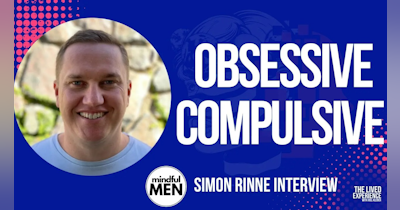Children who have a parent with mental illness - Interview with Rose Cuff from Satellite Foundation
If you grew up with a parent or caregiver who had a mental illness, you may have experienced feelings of fear and uncertainty. The fear of losing that parent is a common experience for many children and young people in this situation. But there is hope.
The Satellite Foundation, founded in 2009 by Rose Cuff and Varina Cappellari, aims to provide peer support programs for children and young people in families affected by mental illness.
Since its inception, the Satellite Foundation has been run entirely on the goodwill of volunteers and received little funding. However, their work has not gone unnoticed.
The foundation was recognized by the Victorian Royal Commission in Mental Health, bringing much-needed attention to the challenges faced by families dealing with mental illness.
In this article, we will explore the history of the Satellite Foundation, the challenges they have faced, and the importance of addressing mental health in families.
Key Takeaways
- The Satellite Foundation was founded in 2009 to provide peer support programs for children and young people in families affected by mental illness.
- The foundation has faced many challenges, including a lack of funding and recognition prior to the Victorian Royal Commission in Mental Health.
- Addressing mental health in families is crucial, and organizations like the Satellite Foundation are working to provide support and resources for those in need.
The Fear of Parent Dying
It is not uncommon for children and young people to fear the death of a parent, especially when the parent is receiving treatment in a hospital. This fear can be overwhelming and can cause significant distress to the child or young person.
The Satellite Foundation, founded in 2009, is a charity that provides peer support programs for children and young people who have a parent or carer with a mental illness.
The foundation aims to provide a safe space for young people to talk about their experiences and receive support from their peers.
Prior to the foundation's establishment, there was very little support for children and young people in families where a parent or carer had a mental illness.
There was a lack of routine inquiry about the impact of the parent's illness on the children, and many young people and families had negative experiences.
The FAPMI program, developed by the Satellite Foundation, aims to identify and support families where a parent has a mental illness.
The program encourages routine inquiry about the impact of the parent's illness on the family and provides support and resources for children and young people.
The foundation's work has been recognized by the Victorian Royal Commission on Mental Health, which has highlighted the need for more support for children and young people in families affected by mental illness.
If you are a child or young person with a parent or carer with a mental illness, it is important to know that you are not alone.
The Satellite Foundation and other organizations provide support and resources to help you cope with the impact of your parent's illness on your life.
Rose Cuff and the Satellite Foundation
Rose Cuff is the founder of the Satellite Foundation, a charity that provides peer support programs for children and young people who have a parent or carer with a mental illness.
The foundation was established in 2009 due to the risk of losing peer support programs that were designed to provide a space for young people to talk about their experiences.
Since then, the foundation has been run entirely on the goodwill of volunteers, including Cuff, who had a full-time job while running the foundation.
The Satellite Foundation received funding from the Commonwealth in 2019 and recently from the Victorian Royal Commission in Mental Health.
The foundation was recognized for its work in providing support to families with a parent or carer with a mental illness.
The foundation's FAPMI program, which focuses on families with parents with a mental illness, was also recognized by the commission.
Before the Satellite Foundation, there was little support for children and young people with a parent or carer with a mental illness.
There was a lack of inquiry at a routine level, and people working in services had a fear of saying the wrong thing or involving the wrong people.
Parents and carers also had concerns about losing custody of their children if they talked about them.
The Satellite Foundation aims to change this by providing peer support programs and identifying families with a parent or carer with a mental illness.
The foundation also encourages workers to ask about children and young people and their experiences.
It's essential to know what's happening within the family and how much children might be impacted by what's happening in their family.
The Satellite Foundation's work is transformative and provides hope for families with a parent or carer with a mental illness.
The Birth of Satellite Foundation
The Satellite Foundation was founded in 2009 by Rose Cuff and Varina Kelly. The foundation was created to provide support for children and young people who have a parent or caregiver with mental health challenges. The organization was started in response to a change in funding focus that put peer support programs for children and young people at risk of being lost.
Initially, the foundation had no funding and was run entirely on the goodwill of volunteers. Most people involved, including the founders, had full-time jobs and ran the organization in their spare time. Despite this, the foundation was able to develop some peer support programs for children and young people.
Over the years, the foundation has grown and received funding from the Commonwealth in 2019 and recently from the Victorian Royal Commission.
This funding has allowed the foundation to invest properly in both time and money and to involve young people in the organization.
Before the Satellite Foundation, there was very little support for children and young people who had a parent or caregiver with mental health challenges.
Programs and supports were patchy, and there was a lack of routine inquiry into whether a patient had children and what their experiences were. This led to negative experiences for many young people and families.
The Satellite Foundation has been instrumental in changing this by providing support for children and young people and advocating for routine inquiry into the experiences of children and young people in families with mental health challenges. The foundation's work has been recognized by the Victorian Royal Commission and has been transformative for many families and young people.
Recognition from the Victorian Royal Commission
Satellite Foundation, a charity founded in 2009 by Rose Cuff and Varina Clark, has been working to provide peer support programs for children and young people in families where a parent or carer has a mental illness. The foundation has been run entirely on the goodwill of volunteers until receiving funding from the Commonwealth in 2019 and recently from the Victorian Royal Commission.
The recognition from the Royal Commission has been transformative for the foundation, allowing them to invest more time and money in supporting young people.
The Royal Commission's recognition of the Satellite Foundation and their Families and Carers Mental Health Education (FAME) program came at a time when there was a deepening understanding of the experiences of children and young people growing up in families where a parent or carer has significant mental health challenges.
The lack of recognition and inquiry into the impact on children and young people in these families was previously patchy, with negative experiences reported.
Before the Satellite Foundation's involvement with FAME, there was very little support or recognition for children and young people in these families.
There was a lack of routine inquiry into whether a person receiving care or treatment had children, and if so, how they might be impacted. This led to anxiety and fear among parents and carers about discussing their children and negative experiences for children and young people.
The Royal Commission's recognition of the Satellite Foundation and its work with FAPMI has been a significant step towards addressing the lack of support and recognition for children and young people in families where a parent or carer has a mental illness. The recognition has given a voice to many in this space, allowing for a deeper understanding of what is helpful and what is missing.
The Pre-Satellite Era
Before the establishment of the Satellite Foundation in 2009, there was very little support available for children and young people who had a parent or caregiver with mental illness.
Programs and supports were patchy, and experiences were often negative. One of the major issues was the lack of identification of these children and young people.
There was no routine inquiry about whether a person had children or what impact their mental illness might be having on their family.
This led to anxiety and fear about talking to service providers, as well as negative experiences for children and young people.
In addition, there was a lack of recognition that children and young people needed support and services of their own. Many parents and caregivers were afraid to talk about their children, fearing judgment and potential loss of custody. Workers in mental health services were often unsure about how to ask about children and how to involve them in treatment and support.
Overall, the Pre-Satellite Era was characterized by a lack of understanding and support for children and young people affected by parental mental illness. The establishment of the Satellite Foundation in 2009 was a major step forward in addressing these issues and providing much-needed support for families.
Challenges in Addressing Mental Health in Families
Addressing mental health in families where a parent or caregiver has a mental illness can be challenging. One of the main challenges is the fear of hospitalization and the potential separation of the family. Many children and young people fear that their parents will not return or worse, that they have died. This fear is common and can prevent families from seeking the help they need.
Prior to the establishment of organizations such as the Satellite Foundation, there was very little support for children and young people in families where a parent or caregiver has a mental illness. In many cases, there was a lack of identification and inquiry into the impact of the illness on the family. This led to negative experiences for many young people and families.
One of the key challenges was the lack of routine inquiry into the presence of children and young people in families where a parent or caregiver has a mental illness. This led to a lack of understanding of the impact of the illness on the family and a lack of support for children and young people.
Another challenge was the fear of stigma and judgment. Many parents and caregivers were afraid to talk about their children or seek help for fear of being judged or losing custody of their children. This fear was also present among service providers, leading to a lack of inquiry and support for families.
The establishment of organizations such as the Satellite Foundation has helped to address these challenges by providing peer support programs for children and young people.
However, there is still much work to be done in addressing the challenges faced by families where a parent or caregiver has a mental illness.
Routine inquiry and support for families are crucial in ensuring that children and young people receive the help they need to cope with the impact of mental illness on their families.
The Role of Government and Public Figures
As discussed in the previous section, there has been a lack of recognition and support for children and young people with parents or carers who have mental health challenges.
This has resulted in negative experiences and fear of judgment for both the parents and the children.
However, there have been recent developments in government and public figures recognizing the importance of addressing this issue. The Victorian Royal Commission in Mental Health named the Satellite Foundation and the Families Where a Parent Has a Mental Illness (FaPMI) program as important organizations in this space. This recognition has brought attention to the need for better support and resources for children and young people in these situations.
Additionally, there has been a shift towards routine inquiry in adult mental health services about whether the person receiving care or treatment has children. This is important in identifying the impact on families and providing appropriate support. Public figures, such as Joel in the video, have also raised awareness and shared their own experiences, contributing to a deeper understanding of the issue.
Overall, while there is still progress to be made, the recognition and support from government and public figures is a step in the right direction for improving the lives of children and young people in families affected by mental health challenges.
Conclusion
In summary, the Satellite Foundation was founded in 2009 to provide peer support programs for children and young people in families where a parent or carer has a mental illness. Prior to the foundation's establishment, there was a lack of recognition and support for children and young people impacted by mental illness in their families.
The foundation has been run entirely on the goodwill of volunteers until recently receiving funding from the Commonwealth and the Victorian Royal Commission.
The foundation's work has been transformative, providing much-needed support and recognition for children and young people impacted by mental illness in their families.
The foundation's FAMPI program has been particularly instrumental in identifying and supporting children and young people impacted by mental illness in their families. The lack of routine inquiry into the impact of mental illness on families has been a significant issue, leading to negative experiences for many. The foundation's work has helped to address this issue and provide much-needed support for families impacted by mental illness.
If you want to donate to a mental health charity, this is the one! Donate via https://www.satellitefoundation.org.au/donate/











